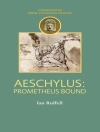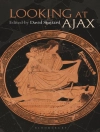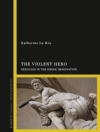Dionysus Resurrected analyzes the global resurgence since
the late 1960s of Euripides’ The Bacchae. By analyzing
and contextualizing these modern day performances, the author
reveals striking parallels between transformational events taking
place during the era of the play’s revival and events within
the play itself.
* Puts forward a lively discussion of the parallels between
transformational eventsduring the era of the play’s revival
and events within the play itself
* The first comparative study to analyse and contextualize
performances of The Bacchae that took place between 1968 and
2009 from the United States, Africa, Latin America, Europe and
Asia
* Argues that presentations of the play not only represent
liminal states but also transfer the spectators into such
states
* Contends that the play’s reflection on various stages of
globalization render the tragedy a contemporary play
* Establishes the importance of The Bacchae within
Euripides’ work as the only extant tragedy in which the god
Dionysus himself appears, not just as a character but as the
protagonist
Table of Content
Acknowledgments vii
Preface ix
Introduction 1
-Rediscovering The Bacchae –
Part I: Festivals of Liberation: Celebrating Communality 25
Chapter 1: The Birth Ritual of a New Theatre 27
– Richard Schechner’s Dionysus in 69 in New York (1968) –
Chapter 2: Celebrating a Communion Rite? 48
– Wole Soyinka’s The Bacchae of Euripides at London’s National Theatre (1973) –
Chapter 3: Sparagmos and Omophagia 72
– Teat(r)o Oficina’s Bacantes in São Paulo (1996) –
Part II: Renegotiating Cultural Identities 91
Chapter 4: On the Strangeness and Inaccessibility of the Past 93
– The Antiquity Project at the Schaubühne Berlin (1974) –
Chapter 5: Performing or Contaminating Greekness? 116
– Theodoros Terzopoulos’ The Bacchae in Delphi (1986) –
Chapter 6: In Search of New Identities 136
– Krzysztof Warlikowski’s The Bacchae in Warsaw (2001) –
Part III: Productive Encounter or Destructive Clash of Cultures? 157
Chapter 7: Dismemberment and the Quest for Wholeness 159
– Suzuki Tadashi’s The Bacchae in Japan and on World Tour (1978-2008) –
Chapter 8: Transforming Kathakali 186
– The Bacchae by Guru Sadanam P. V. Balakrishnan in Delphi and New Delhi (1998) –
Chapter 9: Beijing Opera Dismembered 206
– Peter Steadman and Chen Shi-zheng’s The Bacchae in Beijing (1996) –
Epilogue 225
Name Index 231
Subject Index 236
About the author
ERIKA FISCHER-LICHTE is Professor of Theatre Studies at the Institut für Theaterwissenschaft at the Freie Universität of Berlin and Director of the International research centre ‘Interweaving Performance cultures.’ She has published extensively on the history of the theatre and on the reception of Greek tragedy. Her most recent publications include Theatre, Sacrifice, Ritual: Exploring Forms of Political Theatre (2005), The Transformative Power of Performance: A New Aesthetics (2008), and Performance and the Politics of Space: Theatre and Topology (edited with Benjamin Wihstutz, 2012).












